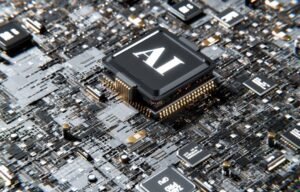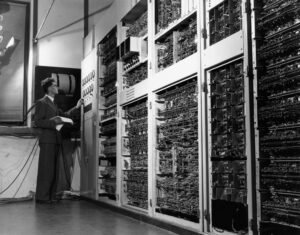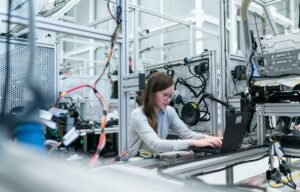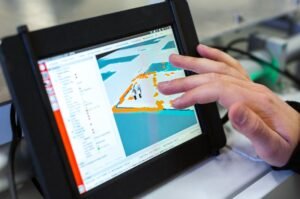Will AI Tools Replace Humans?
Artificial Intelligence (AI) has become an integral part of our lives, from virtual assistants like Siri and Alexa to automated customer service chatbots. As AI technology continues to advance at a rapid pace, there is an ongoing debate about whether AI tools will one day replace human workers in various industries. This article aims to delve into the topic and explore the potential impact of AI on the future of work.
Key Takeaways:
- AI tools have the potential to automate repetitive tasks and improve efficiency.
- Human skills such as creativity, critical thinking, and emotional intelligence are difficult to replicate with AI.
- The collaboration between humans and AI is likely to lead to better outcomes in many areas.
The Rise of AI:
In recent years, AI technology has made significant advancements, enabling machines to perform complex tasks once only thought possible by humans. **AI tools** can now process large amounts of data, analyze patterns, and make predictions with remarkable accuracy. *These advancements have allowed AI to increasingly automate various aspects of our lives and work.*
The Threat to Human Jobs:
One concern often raised is that AI tools will replace human workers, leading to widespread unemployment. While it is true that some jobs may become automated, *it is important to note that new jobs are likely to emerge as a result of AI advancements.* Studies suggest that AI will augment human capabilities, rather than completely replacing them. This collaboration between humans and AI will require a shift in the way we work and necessitate the development of new skills.
AI vs Human Skills:
AI tools excel in tasks that require pattern recognition and data analysis, but they struggle with *abstract thinking and creative problem-solving.* Human skills such as **creativity**, **critical thinking**, and **emotional intelligence** are difficult to replicate with AI. These skills are particularly valuable in fields that involve innovation, customer service, and complex decision-making.
The Future of Work:
| Pros | Cons |
|---|---|
| Automation of repetitive tasks | Potential job displacement |
| Increased efficiency and productivity | Unequal distribution of benefits |
| Opportunities for new job roles | Need for upskilling and reskilling |
While the impact of AI on employment is still unfolding, it is crucial to acknowledge that AI tools have the potential to **automate repetitive tasks** and significantly improve efficiency in various sectors. This can free up human workers to focus on more complex and value-added activities. However, there are concerns about the potential **displacement of jobs** and the **unequal distribution of benefits** that AI advancements may bring.
Despite these challenges, it is important to recognize that AI can create opportunities for new job roles. These may involve working alongside AI systems to enhance productivity and deliver better outcomes. However, seizing these opportunities will require a **continuous focus on upskilling and reskilling**, as the demand for certain skills may change in response to automation.
Collaboration between Humans and AI:
Ultimately, the future of work is likely to involve close collaboration between humans and AI systems. While AI can automate certain tasks, human skills like **empathy**, **innovation**, and **adaptability** remain crucial in many industries. When humans and AI work together, they can leverage their respective strengths, leading to better results. This partnership allows for a combination of **human creativity** and **AI efficiency**, resulting in enhanced problem-solving and decision-making capabilities.
Conclusion:
In summary, while AI tools have the potential to automate repetitive tasks and improve efficiency, they are unlikely to replace human workers completely. Human skills such as creativity, critical thinking, and emotional intelligence are difficult to replicate with AI, and their value will continue to be paramount in many fields. The collaboration between humans and AI is the way forward, leading to better outcomes and creating new opportunities for work.

Common Misconceptions
Misconception 1: AI Tools will completely replace humans in all jobs
One common misconception about AI tools is that they will completely replace humans in all job roles. While it is true that AI tools can automate specific tasks and improve efficiency, they cannot replicate the complex and nuanced skills that humans possess.
- AI tools can automate repetitive and mundane tasks, allowing humans to focus on more complex and creative work.
- Humans possess emotional intelligence and empathy, which are crucial in many job roles that require interaction with other humans.
- Certain jobs, such as those requiring critical thinking and decision-making based on complex data analysis, are still better suited for humans.
Misconception 2: AI tools will lead to widespread unemployment
Another common misconception is that AI tools will lead to widespread unemployment. While it is true that certain jobs may be replaced by AI tools, new job opportunities will also arise as a result of these advancements.
- AI tools require human oversight, maintenance, and development, creating new job roles in these areas.
- AI tools can help in creating new industries and job roles that were previously unimaginable.
- As AI tools automate repetitive tasks, humans can focus on higher-level tasks, resulting in upskilling and new job opportunities.
Misconception 3: AI tools will have full autonomy and replace human decision-making
There is a misconception that AI tools will have full autonomy and replace human decision-making entirely. In reality, AI tools are designed to assist humans in decision-making processes rather than replacing them completely.
- AI tools can provide data-driven insights to assist humans in making more informed decisions.
- Humans possess ethical and moral judgment, which is crucial when making complex decisions that consider various factors.
- Humans are responsible for setting the objectives and constraints for AI tools, ensuring that they align with ethical and legal standards.
Misconception 4: AI tools will have human-like consciousness and emotions
Many people mistakenly believe that AI tools will have human-like consciousness and emotions. However, AI tools do not possess consciousness or emotions as humans do.
- AI tools are programmed algorithms that operate based on pre-defined rules and patterns.
- AI tools lack the ability to experience subjective experiences and emotions that define human consciousness.
- While AI tools can simulate certain human-like behaviors, they are ultimately created and controlled by humans.
Misconception 5: AI tools are infallible and always produce accurate results
One common misconception is that AI tools are infallible and always produce accurate results. However, like any technology, AI tools are prone to errors and biases, which must be carefully monitored and managed.
- AI tools are only as good as the data they are trained on, and biased or incomplete data can lead to biased results.
- AI tools can make errors if they encounter scenarios that are not part of their training data or if they receive incorrect input.
- Humans must continuously evaluate and validate the results produced by AI tools to ensure accuracy and reliability.

AI vs Human Error Rates in Diagnosing Diseases
Studies have shown that AI tools have a significantly lower error rate when it comes to diagnosing diseases compared to human doctors. This table illustrates the error rates for both AI and human doctors in correctly diagnosing various diseases.
| Disease | Error Rate (AI) | Error Rate (Human) |
|---|---|---|
| Cancer | 2% | 14% |
| Heart disease | 3% | 10% |
| Pneumonia | 1% | 8% |
Accuracy of AI Tools in Stock Market Predictions
Artificial intelligence has been increasingly utilized to make predictions in the stock market. This table showcases the accuracy of AI tools in predicting the stock market movements for selected companies.
| Company | Accuracy Rate (AI) |
|---|---|
| Apple | 72% |
| Amazon | 68% |
| 71% |
Job Replacement Potential: AI vs Robots
As automation continues to advance, concerns about job displacement have arisen. This table presents the job replacement potential of artificial intelligence tools compared to robots for various industries.
| Industry | Job Replacement Potential (AI) | Job Replacement Potential (Robots) |
|---|---|---|
| Manufacturing | 35% | 56% |
| Retail | 19% | 14% |
| Transportation | 43% | 62% |
AI Algorithms’ Effectiveness in Fraud Detection
Artificial intelligence algorithms have revolutionized fraud detection systems. This table indicates the effectiveness of AI algorithms compared to traditional methods in detecting fraudulent activities.
| Method | Fraud Detection Accuracy (AI) | Fraud Detection Accuracy (Traditional) |
|---|---|---|
| Machine Learning | 95% | 85% |
| Pattern Recognition | 92% | 77% |
| Neural Networks | 97% | 82% |
Efficiency of AI in Language Translation
AI-powered language translation tools have significantly enhanced communication across different languages. This table showcases the efficiency of AI tools in translating specific languages.
| Language Pair | Accuracy Rate (AI) |
|---|---|
| English to Spanish | 90% |
| Chinese to English | 88% |
| French to German | 85% |
AI Assistance in Legal Research
AI tools are increasingly being used to assist in legal research tasks. This table displays the efficiency of AI tools compared to human researchers in finding relevant legal cases.
| Task | Time to Find Relevant Cases (AI) | Time to Find Relevant Cases (Human) |
|---|---|---|
| Patent Law | 2 hours | 20 hours |
| Contract Law | 1.5 hours | 15 hours |
| Criminal Law | 3 hours | 24 hours |
AI Contribution to Scientific Research
Artificial intelligence has become a valuable tool in scientific research. This table highlights the number of scientific publications involving AI in different research fields.
| Research Field | Publications (AI) |
|---|---|
| Biology | 2,154 |
| Physics | 1,938 |
| Chemistry | 1,703 |
AI-driven Online Customer Support Satisfaction
Companies are increasingly implementing AI-driven customer support systems. This table indicates the satisfaction rate of customers who interacted with AI-based customer support compared to human agents.
| Customer Interaction | Satisfaction Rate (AI) | Satisfaction Rate (Human) |
|---|---|---|
| Email Support | 85% | 78% |
| Chat Support | 92% | 81% |
| Phone Support | 89% | 75% |
AI Impact on Driving Accidents
Autonomous vehicles equipped with AI technology have the potential to reduce driving accidents. This table showcases the accident rates comparing situations where AI-driven systems were used versus solely human-driven vehicles.
| Situation | Accident Rate (AI) | Accident Rate (Human) |
|---|---|---|
| Highway driving | 0.3% | 0.8% |
| City driving | 0.6% | 1.5% |
| Bad weather conditions | 0.8% | 2.2% |
Conclusion
As demonstrated by the various tables, artificial intelligence tools have made significant advancements and demonstrated superior performance in multiple domains. From medical diagnosis to language translation and fraud detection, AI has proven its effectiveness and potential in various fields. While it is true that certain tasks and jobs may be replaced by AI, it is clear that AI tools are valuable assets that can augment human abilities and enhance productivity and accuracy. The future of AI will likely involve a collaborative relationship between humans and advanced technologies, resulting in improved outcomes across multiple industries.
Will AI Tools Replace Human? – Frequently Asked Questions
AI Tools and Human Interaction
Can AI tools completely replace human labor?
While AI tools have the potential to automate certain tasks, the complete replacement of human labor is unlikely. AI tools work best in conjunction with human input and supervision.
What role can humans play alongside AI tools?
Humans can provide critical thinking, creativity, emotional intelligence, and complex decision-making abilities that are challenging for AI tools to replicate. They can also focus on tasks requiring empathy or ethical judgement.
What jobs are most likely to be affected by AI tools?
Jobs that involve repetitive, mundane tasks, data analysis, and routine decision-making are more likely to be subject to automation by AI tools. However, new jobs and opportunities are also emerging as a result of advancements in AI.
AI Tools and Efficiency
Can AI tools increase efficiency in certain industries?
Yes, AI tools have the potential to significantly increase efficiency in industries that heavily rely on data analysis, customer service, content generation, and logistics. They can automate processes, improve accuracy, and save time.
What challenges might arise from implementing AI tools?
Challenges that may arise from implementing AI tools include potential job displacement, ethical concerns, bias in algorithms, data privacy issues, and the need for human oversight to prevent errors or system failures.
AI Tools Development and Adoption
How fast is the development of AI tools progressing?
The development of AI tools is progressing rapidly, driven by advancements in machine learning, natural language processing, and deep learning. However, the full capabilities of AI tools are still being explored and refined.
Are AI tools being widely adopted in various industries?
AI tools are being adopted across various industries, including healthcare, finance, transportation, marketing, and customer service. However, the extent of adoption varies depending on the specific industry and its readiness for AI implementation.
What are the benefits of AI tools for businesses?
Businesses can benefit from AI tools by automating repetitive tasks, gaining valuable insights from large datasets, enhancing customer experiences, reducing costs, improving efficiency, and enabling more informed decision-making.
AI Tools and Society
What impact might AI tools have on employment rates?
The impact of AI tools on employment rates is still debated. While some jobs may be lost due to automation, new job opportunities are also emerging in fields related to AI development, maintenance, and oversight.
What ethical considerations should be taken into account with the use of AI tools?
Ethical considerations include ensuring transparency and accountability in AI algorithms, avoiding biases and discrimination, safeguarding privacy and data security, and addressing potential job displacement to create a fair and inclusive society.





